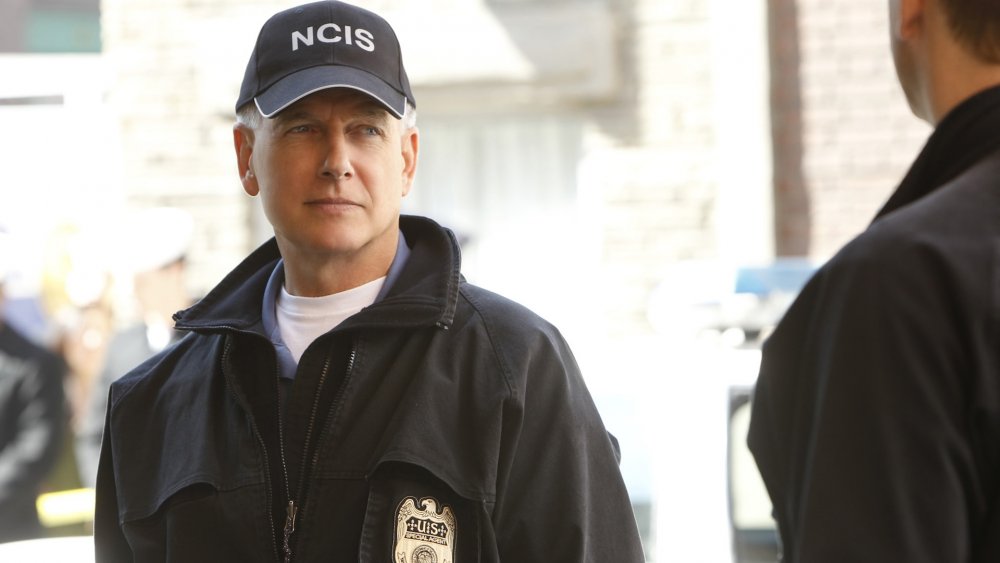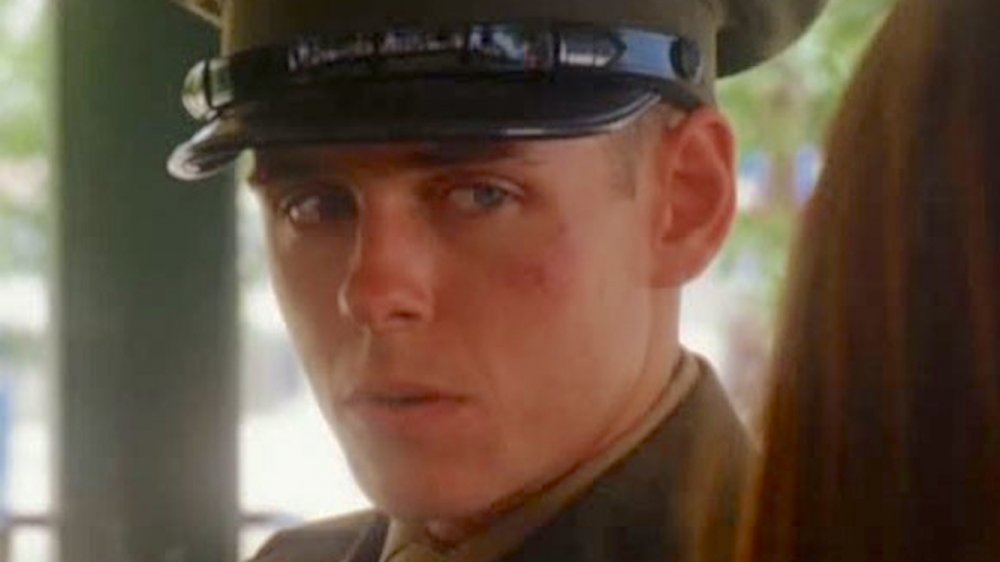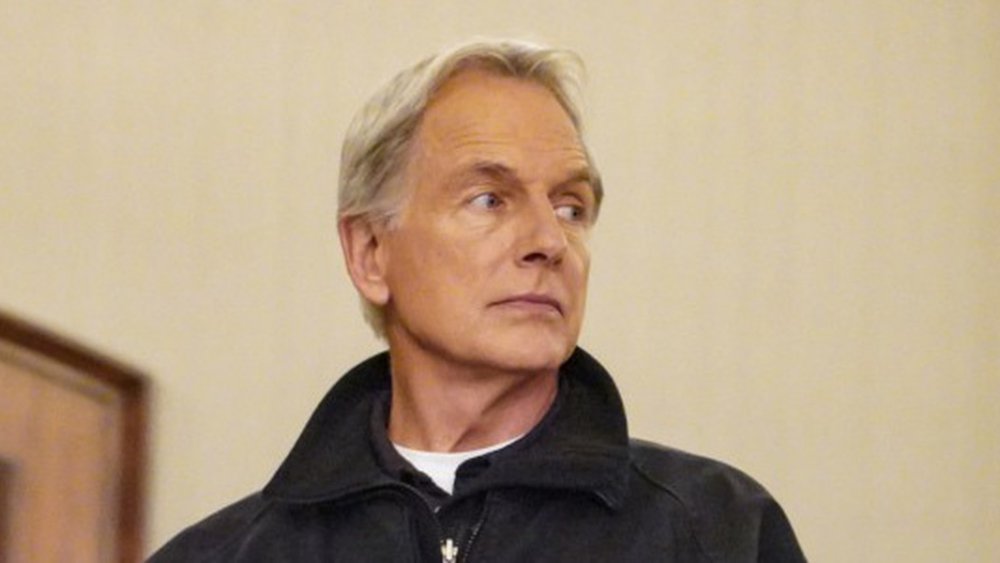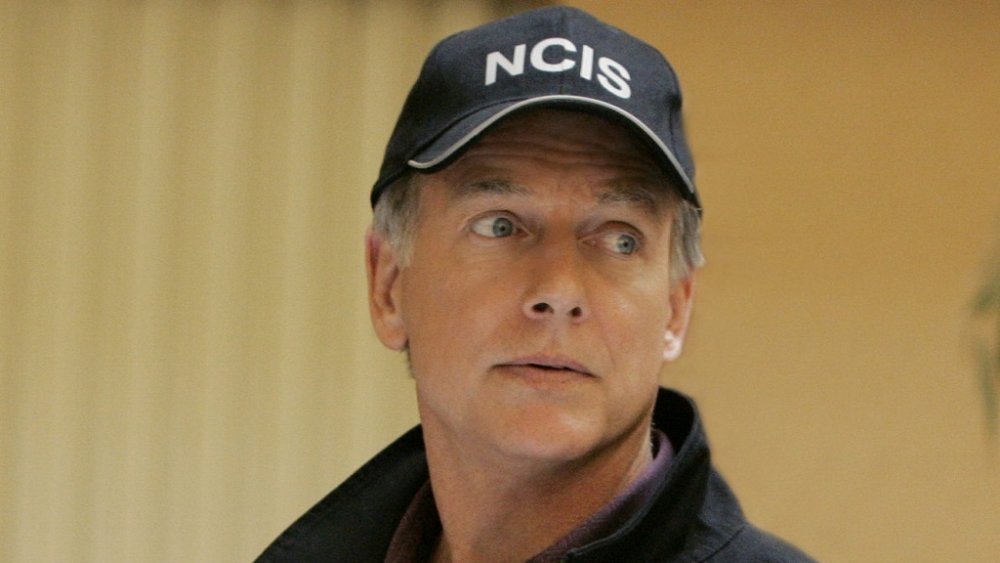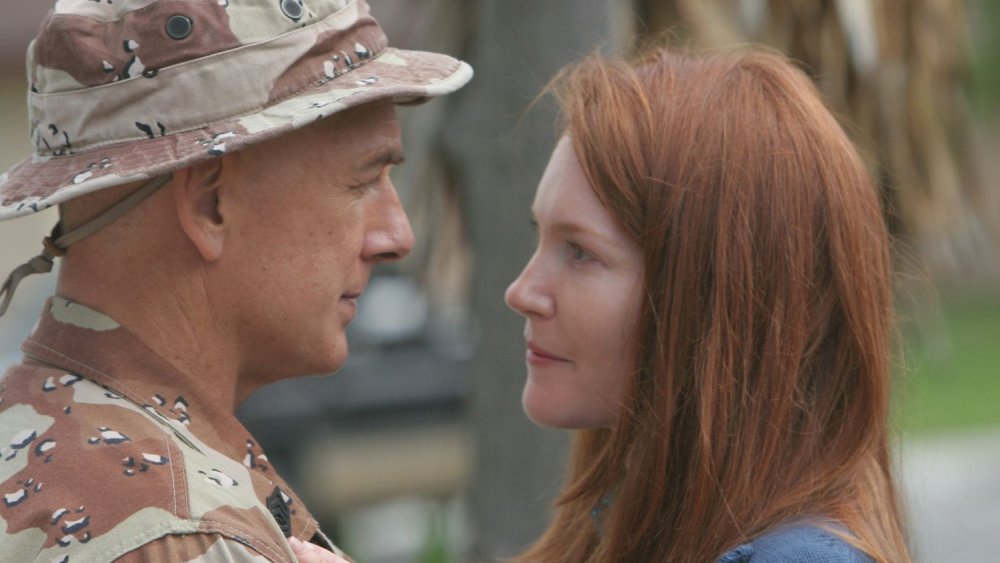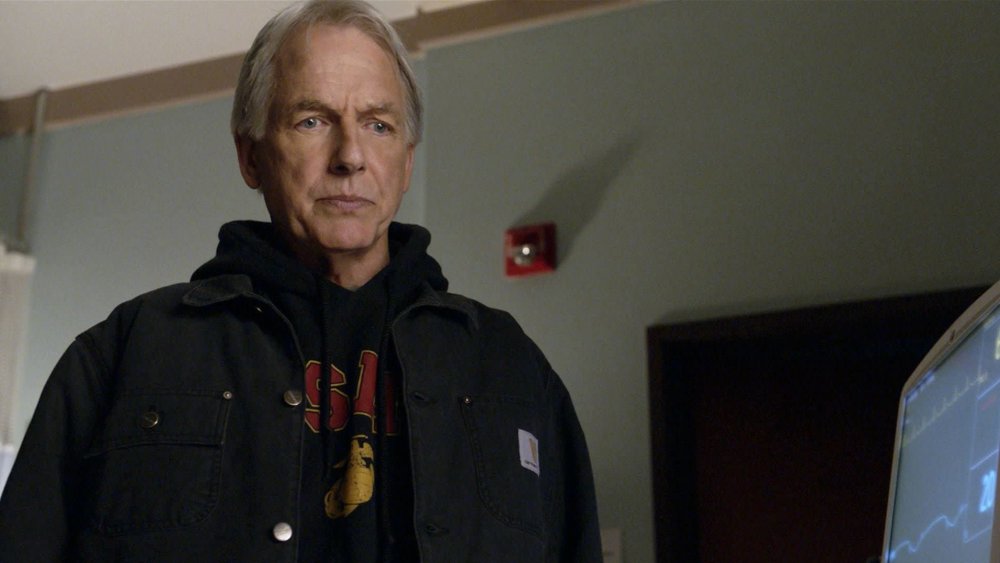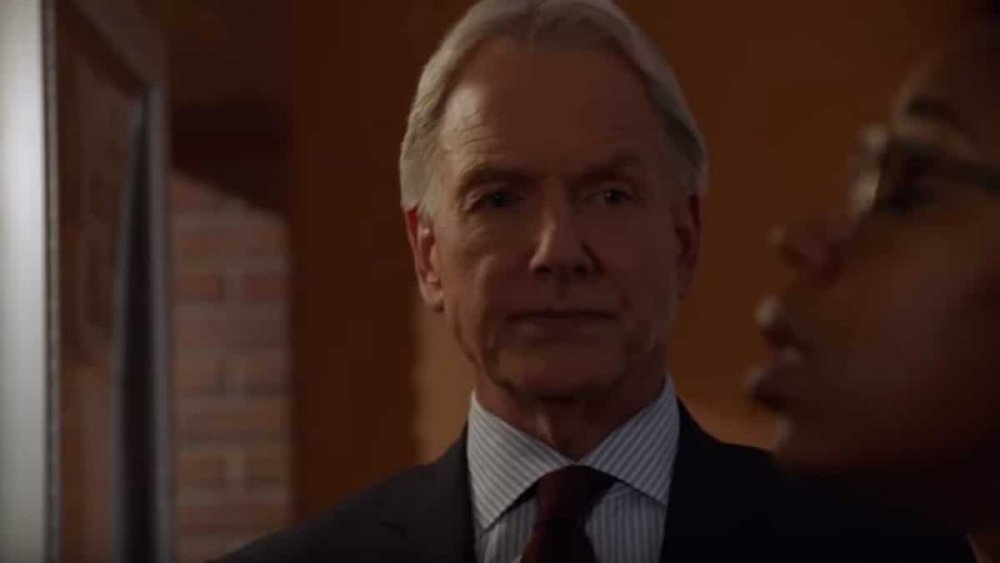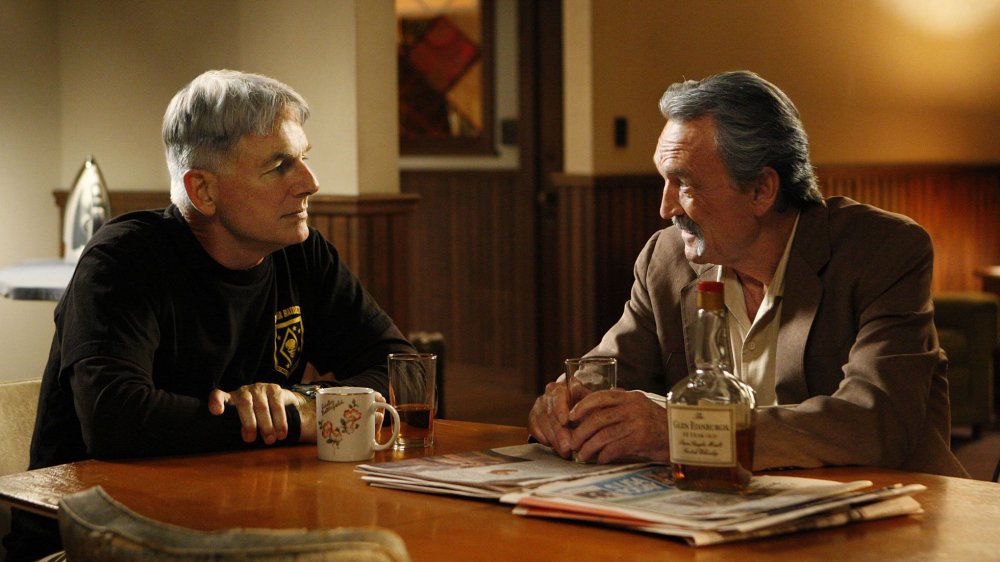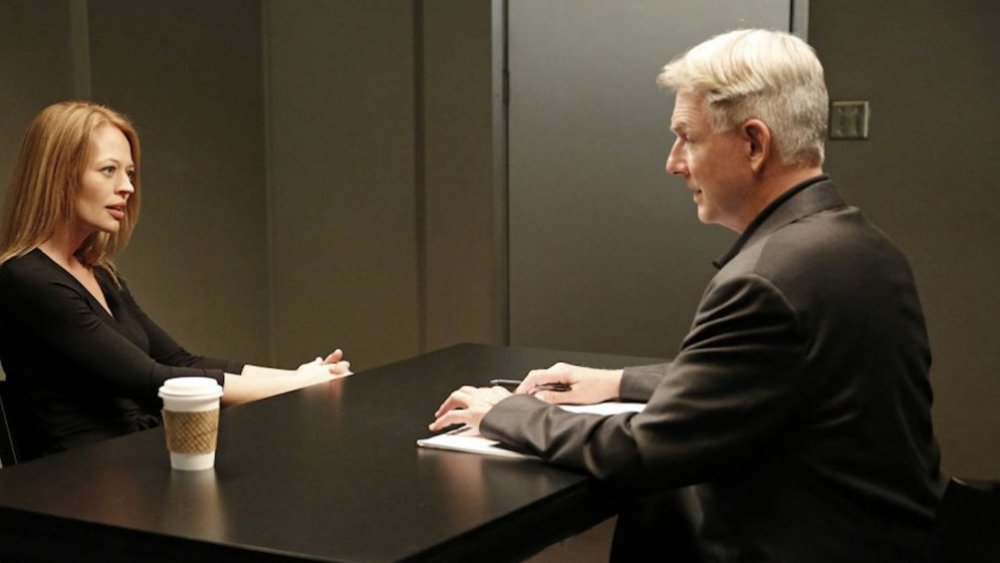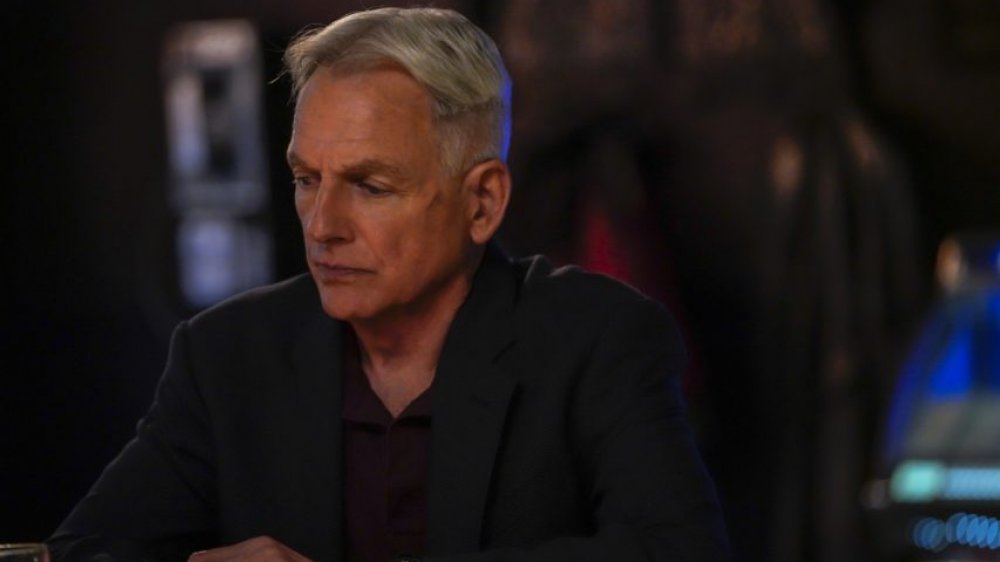Gibbs' Entire NCIS Backstory Explained
NCIS wouldn't work without Leroy Jethro Gibbs. The improbably named special agent played by Mark Harmon is the linchpin of the show's entire expanded universe, the nexus around which its forerunner JAG and its two spinoff series, NCIS: New Orleans and NCIS: Los Angeles, spin.
As the commander of the wildly successful military procedural's central team, he's solved crimes and deescalated situations among some of the most heavily armed people in the world. None of NCIS holds together if you don't believe Gibbs as a character — and as one of the top-rated series on television for much of its run, it's safe to say NCIS viewers definitely believe.
Gibbs' outsize status in the show's universe leads to him being one of the most fleshed-out and deeply realized characters within the world — but when you're talking about police procedurals, a deep backstory is rarely a good thing. In short, Gibbs' life has been a blend of professional success and extreme personal tragedy, and we're here to break it all down. This is Gibbs' entire NCIS backstory explained.
Gibbs' NCIS origins
Gibbs was born and raised in the small town of Stillwater, Pennsylvania. His father owned the local general store and was a pillar of the community, but Gibbs rebelled against the upstanding nature of his family.
Though he would go on to be a cop in the military, about as straitlaced of a career as you could possibly imagine, young Gibbs was known around his hometown as a juvenile delinquent. He would frequently get into fights and other scrapes around town, resenting his father for regularly coming to the rescue. The animosity between the pair led to a 30-year split, one that only healed when Gibbs was forced to return to Stillwater on a case.
Gibbs ultimately found a way out of his small town. He was convinced to join the Marines by his father's business partner and best friend LJ. The younger Gibbs was named for the veteran and business owner, but his namesake also fell out with Gibbs' father following a deeply tragic event.
A series of formative tragedies for Gibbs
Gibbs' mother committed suicide via an intentional drug overdose when he was 14 years old. Though his mother made the choice with her family in mind — she took her own life so they wouldn't have to watch her die from terminal cancer — it tore Gibbs' world apart.
Gibbs and his father were already on less-than-ideal terms, and the strain of having to raise Gibbs alone only exacerbated that tension. Eventually, they realized that LJ had known of Gibbs' mother's plan to commit suicide. The grieving men pushed him out, and he fled town and disappeared.
The decision to join the Marines stuck, however. And Gibbs enlisted shortly after graduating high school. He lost his first close friend in the service less than a year after enlisting in a helicopter crash near an American base in Okinawa.
Things weren't all bad, though. Gibbs rose through the ranks as a military police officer and started a relationship with a woman back home named Shannon. He met her while waiting for the train out of town and their relationship grew during his early years in the Marines. They were married after his sixth year in the service, and had a child two years later.
Gibbs and Desert Storm
During his time in the Marines, Gibbs became an expert marksman. While he began as a member of the military police, he also was certified as a scout sniper. This came into play when he was deployed to Panama in the late '80s and the Persian Gulf during Operation Desert Storm. Gibbs, who we would later find out has no problem with ideological murkiness, served in two wars that are hard to justify from the military's traditionally stated goal of protecting the United States.
Gibbs is a man of few words, so his past comes out in dribbles. In flashbacks, longtime watchers can piece together his service record. He was wounded during his tour, during an engagement with Iraqi forces. After awakening from a 19-day-long coma and returning home, he was awarded the Purple Heart. Though Gibbs has proven to be a talented soldier and leader, that rebellious kid was still inside — he declined to appear for any of his medal ceremonies.
The death of Shannon Gibbs
If you thought the good times could last, you haven't been paying attention. While Gibbs was deployed in the Persian Gulf, his wife and 8-year-old daughter were killed.
Making matters worse, Gibbs' wife was killed for doing what can only be seen as the right thing: Shannon witnessed the murder of one of Gibbs' fellow Marines, a killing carried out in person by cartel leader Pedro Hernandez. Though it carried some extreme dangers for her, Shannon agreed to testify; she was put into protective custody during the trial, but it proved to be too little.
Shannon and her daughter were being transported to a safe house by an NCIS agent named Kurt Mitchell when their car was attacked. Mitchell was shot through the head, dying behind the wheel, and the out-of-control car crashed, killing Gibbs' wife and daughter.
Writing the rules for Gibbs
While Gibbs' first wife passed on, a part of her lived on in a core piece of Gibbs' personality. The NCIS leader has an incredibly long list of unbreakable rules that he dispenses to his subordinates at appropriate times. There are said to be 69 of them. (One of them is not "don't say 'nice.'") They include a bunch of tips for good investigative police work ("Never believe what you are told, double check"), rules for life ("Never take anything for granted") and tricks that his degenerate younger self would appreciate ("Always be specific when you lie").
The idea for these unshakable laws came from his late wife. She mentioned the fact that she was putting together a list of rules to live by when they first met. He took this idea and ran with it, codifying and then memorizing his own code of conduct.
Exacting revenge
Carrying on her list of rules to live by isn't the only way Gibbs has honored the memory of his late wife. He's shown throughout the series to be a man of action and that goes double when the pieces involved in a plot are his friends and family.
Gibbs was able to track down cartel leader Pedro Hernandez after he returned to the United States and shot Hernandez in the head, echoing the manner in which Agent Kurt Mitchell was killed. The incident was investigated by NCIS Agent Lara Macy, who was able to put together that Gibbs was the man who pulled the trigger, but opted not to pass on this information once she realized his motivations for the killing.
Macy herself was later murdered over her connection to this incident, stabbed to death by a disgraced Army Ranger working for the cartel and left as a message for Gibbs. It's far from the only time that Gibbs' dark past would pop up in unfortunate ways.
Joining the force
Gibbs retired from the Marines in 1992 with a rank of gunnery sergeant and began casting about for something to do with the rest of his life. Because of his fondness for the NCIS officer who investigated the deaths of his wife and daughter, he began training to become a member of the military investigative unit.
Gibbs was a probationary agent, known colloquially as a "probie," under the very man who inspired his career choice. Agent Michael Franks personally oversaw his training and knew that Gibbs murdered Hernandez, having stood aside to allow it to happen.
Franks retired after the 1996 bombing of the Khobar Towers in Saudi Arabia, believing that Saudi extremist Osama bin Laden was behind it. The real-life attack was ultimately pinned on Hezbollah Al-Hejaz, though Bin Laden's involvement remains a point of contention. Still, he saw the denial of his tips as playing politics and retired in exhaustion.
He handed his badge to Gibbs on the way out the door, as he was his successor as commander of the unit. This is where we find Gibbs at the start of NCIS.
Broken hearts
Gibbs' run of bad luck is evident outside of his career. His lifelong closeness to tragedy extends to his love life, with Gibbs frequently picking partners who are less than faithful. It's another situation where he fails to take his own advice (the final rule is "never trust a woman who doesn't trust her man") and he's been linked with plenty of paranoid partners.
His first wife died in a tragic way, but he wasn't the type to swear off of marriage forever. He's been married four times in his life, with each one ending in sad situations. His second wife divorced him, drained his bank account on the way out the door, and eventually remarried to one of Gibbs' close associates, divulging years later that she couldn't get through to Gibbs while he was holding onto the memory of his late first wife. She was later murdered by an extremist. Gibbs' third marriage ended in a more ordinary way: He caught her in the midst of an affair, so she left him for the other man. He lost his fourth wife to his job, as Gibbs had become obsessed with bringing a serial killer to justice.
As of the show's 17th season, Gibbs is still single.
Gibbs' dark secret
The fact that Gibbs killed a man in cold blood before joining NCIS hangs over him throughout his career. Audiences learned about the slaying all the way back in the third season, and the situation occasionally brought it out of him when he was around people he truly trusted. But his team had no idea that the man they were following was a murderer until a vigilante network targeted Gibbs for death. After being confronted by Judge Mike Deakin, Gibbs revealed that he killed Hernandez.
"I killed the man who killed my family," he confessed in his matter-of-fact way.
While the team is quick to move on from it, indicating that his secret is safe with them, it's clear that Gibbs is uncomfortable with so many people knowing what he's done. It flies in the face of his fourth rule for life: "Best way to keep a secret: Keep it to yourself. Second-best, tell one other person — if you must. There is no third best."
